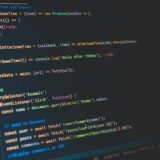In an era where data dictates the course of business, AI (Artificial Intelligence) and SQL (Structured Query Language) have become invaluable SQL recruitment tools teams. Today, HR departments need more than just resumes; they need data to make informed hiring decisions.
AI in Recruitment: The Power of Data
Artificial intelligence has revolutionized recruiting by automating repetitive tasks such as resume screening and interview scheduling. However, its true potential lies in data analysis. AI algorithms can sift through massive amounts of data to find patterns, allowing them to predict candidate success, identify hiring trends, and improve overall recruiting strategies. This knowledge paragraph finder https://www.customwritings.com/howtowrite/reference-finder/ allows HR teams to focus on strategic aspects of recruiting, such as building relationships with candidates and improving retention rates.
AI also enhances efforts to ensure diversity and inclusion. By analyzing data impartially, AI tools can help organizations identify areas where they may need to adjust their hiring practices. Additionally, AI-powered analytics can predict long-term employee performance, making it easier to find candidates who are not only a good fit for the position but also thrive in the corporate culture.
The Role of SQL in Recruitment Data
While artificial intelligence provides recruiting automation, SQL plays an important role in managing and querying the data that powers the AI algorithms. SQL is the backbone of data management, giving recruiters the ability to store, retrieve, and analyze large amounts of candidate data. For example, recruiting teams can use SQL to track various metrics such as the number of applications submitted, average time to hire, and candidate demographics.
SQL also allows you to access important recruiting metrics in real time. For example, by using SQL queries, HR professionals can quickly retrieve data to answer questions such as: “Which hiring source has provided the highest quality candidates over the past year?” or ”How long does it usually take to fill a position in the marketing department?” This information is invaluable for making decisions and planning for the future.
List: Benefits of AI and SQL in Recruitment
- Automated Resume Screening: AI can scan thousands of resumes in minutes, saving HR valuable time.
- Predictive Analytics: AI algorithms use historical data to predict the success and longevity of candidates.
- Diversity and Inclusion: AI helps eliminate bias by analyzing AI for data hiring and suggesting areas for improvement.
- Real-time Data Access: SQL allows instant access to recruitment metrics and trends.
- Scalability: Both AI and SQL are scalable, making them suitable for companies of all sizes.
How SQL Supports Data-Driven Recruitment Decisions
The role of SQL in data-driven recruitment goes beyond simple data retrieval. It allows HR professionals to create sophisticated queries that help them filter, sort, and analyze recruitment data in a meaningful way. With the help of SQL, recruiting teams can create custom reports to track specific hiring metrics, compare candidate pools over time, and evaluate the effectiveness of various recruiting channels.
In addition, SQL can work side by side with artificial intelligence algorithms. After SQL extracts the necessary data from recruiting databases, AI question maker Hearify can process this data to obtain deeper insights, such as identifying patterns of employee turnover, predicting which candidates are most likely to succeed in certain positions, and analyzing labor market trends. The combination of SQL and artificial intelligence enables organizations to make strategic and effective data-driven HR recruitment decisions.
FAQ Section
Q1: How does AI improve the recruitment process?
AI automates repetitive tasks like resume screening and interview scheduling, but its main advantage is in data analysis. It can predict which candidates are most likely to succeed, streamline the hiring process, and improve diversity and inclusion efforts.
Q2: What role does SQL play in recruitment analytics?
SQL is crucial for managing and querying recruitment data. It allows HR teams to store and retrieve important metrics such as time-to-hire, source of hire, and candidate demographics, giving them real-time access to recruitment insights.
Q3: Can AI and SQL be integrated into existing HR systems?
Yes, AI and SQL can be integrated into most HR systems. Many recruitment platforms already support SQL queries, and AI tools can be added as an additional layer to enhance data analytics and decision-making.
Q4: Is AI in recruitment biased?
AI is only as unbiased as the data it is trained on. If trained on biased data, AI can perpetuate those biases. However, when used properly, AI can help eliminate bias by focusing on data-driven insights rather than subjective decision-making.
Conclusion
The future of recruitment lies in the synergy between AI and SQL. Together, they provide powerful tools that enable HR professionals to streamline recruitment processes, improve diversity, and make data-driven decisions. As organizations continue to embrace data analytics, AI and SQL will become even more critical in ensuring efficient, effective, and inclusive recruitment practices.

